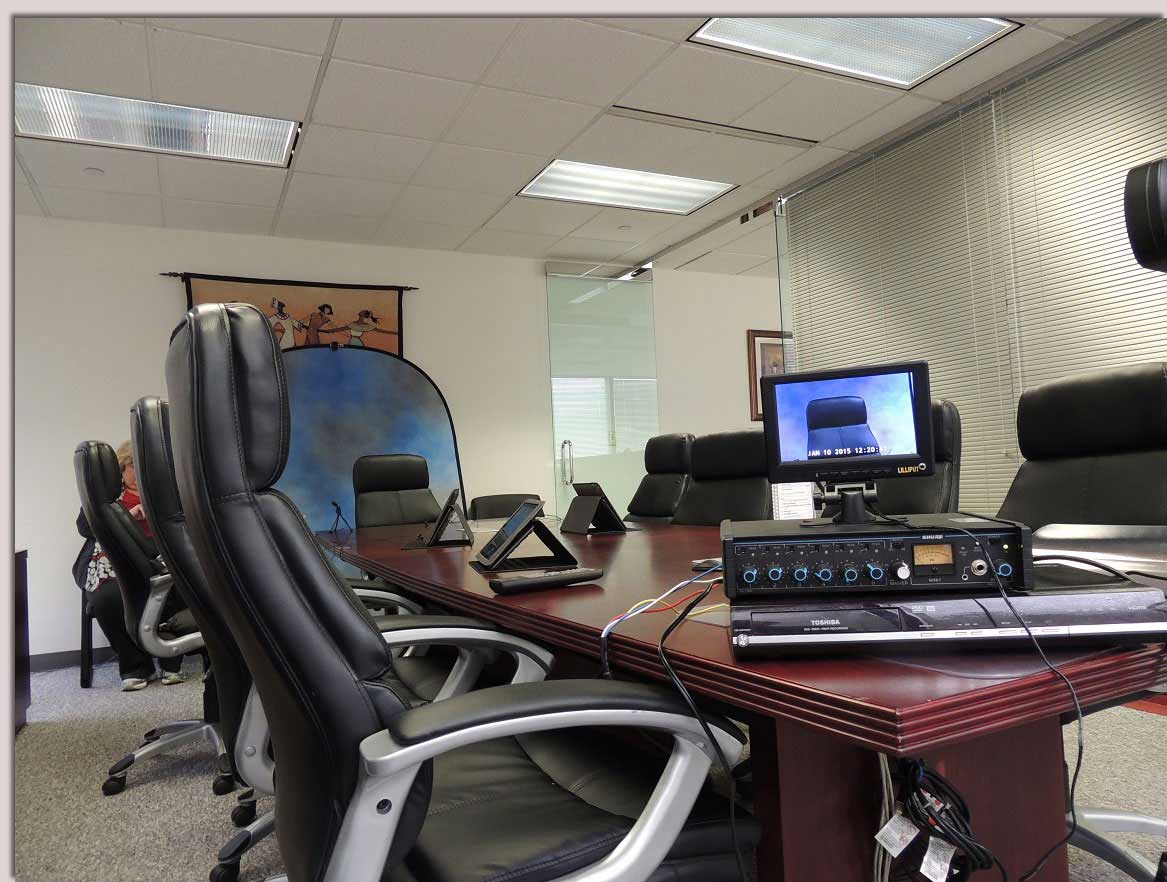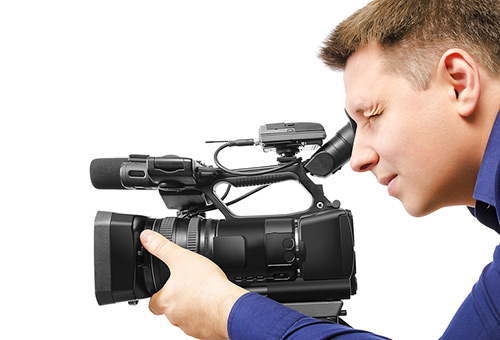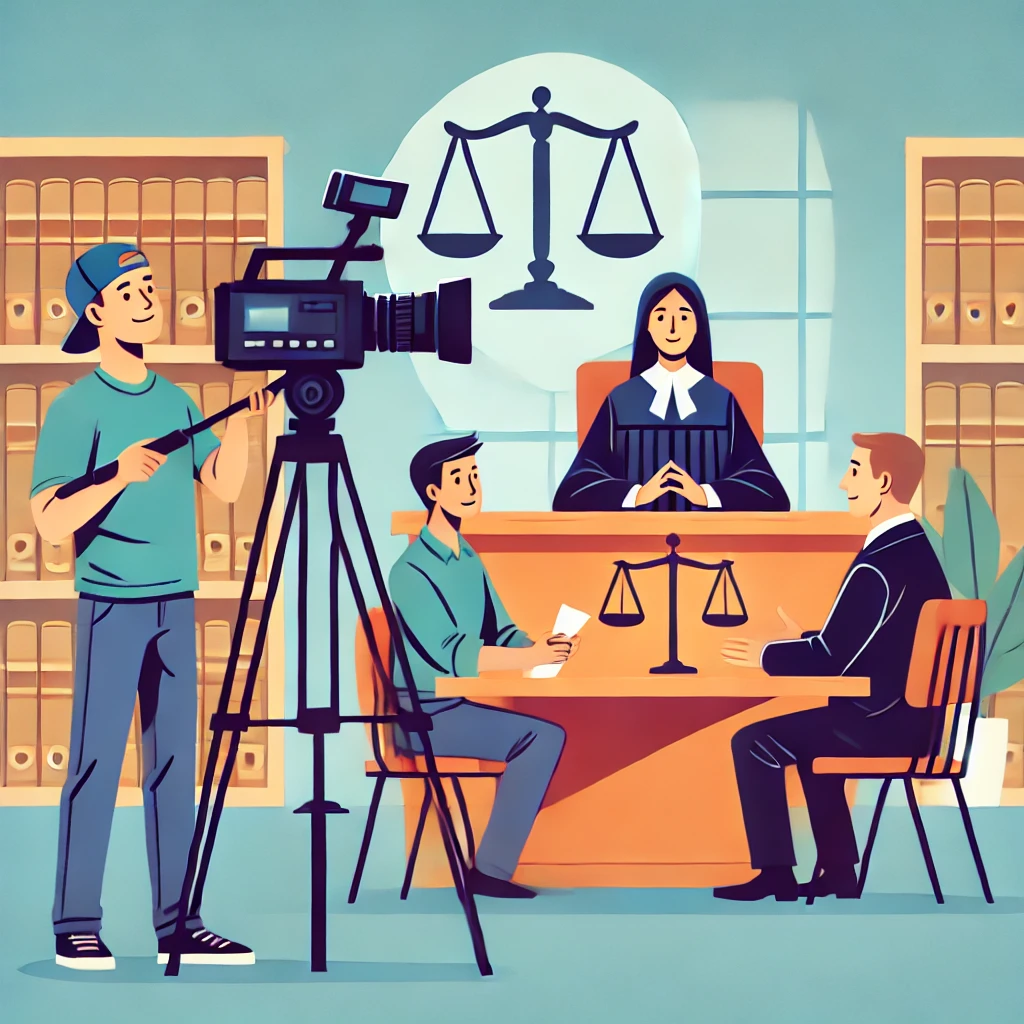The Duty of Lawful Videography in Depositions and Trials
Lawful videography has arised as a necessary tool in both depositions and tests, offering a complex method to recording witness statements. As lawful experts increasingly acknowledge its worth, it triggers a deeper examination of exactly how these aesthetic records can affect juror perceptions and test outcomes.

Value of Lawful Videography
Legal videography plays an essential role in the documents and presentation of depositions and trials. This customized field integrates technical skills with lawful knowledge to produce a reliable record of procedures that can dramatically influence situation results. The appearance of legal videography enhances the understanding of witness testament, permitting jurors and judges to observe not only the talked words however additionally the temperament, feelings, and body language of the witnesses.
Additionally, lawful videography gives an unbiased account of occasions, decreasing the possibility for false impression that can take place with created records alone. This visual paperwork works as an essential tool during test discussions, assisting in a clearer and more influential story for both plaintiffs and defendants. The ability to replay video clip sections during court process allows legal groups to stress essential points, enhancing their disagreements effectively.
The relevance of legal videography expands beyond the courtroom; it likewise plays an important duty in protecting proof for future recommendation, whether for appeals or additional legal activity. As such, its assimilation into the lawful process is necessary for guaranteeing a reasonable and accurate depiction of the facts, eventually adding to the quest of justice.

Process of Legal Videography
While recording the subtleties of depositions and trials, the process of legal videography includes numerous critical steps that guarantee high-grade, accurate recordings. Initially, an expert legal videographer prepares by examining the instance products and understanding the specific requirements of the deposition or trial. This prep work consists of acquainting themselves with the individuals and the context, which assists in recording pertinent details.
On the day of the recording, the videographer sets up the needed devices, which commonly includes high-def cams, microphones, and correct lights. Making sure ideal angles and sound high quality is important, as it directly impacts the effectiveness of the recording. The videographer communicates with lawyers and individuals to establish protocols, ensuring that everyone recognizes the recording procedure.
During the deposition or trial, the videographer diligently videotapes the procedures, paying very close attention to both verbal and non-verbal signs. This consists of catching the disposition and reactions of witnesses and lawyers. After the session wraps up, the videographer may modify the video footage for clarity and conformity with legal standards, generating a final product that properly shows the proceedings for future referral and use in lawful contexts.
Benefits in Depositions
The incorporation of videography in depositions uses various benefits that improve the overall procedure of gathering proof. One primary advantage is the ability to record witness statements with aesthetic and auditory integrity, offering an extra precise depiction of the witness's behavior, tone, and body language. This multidimensional technique allows lawyers and courts to evaluate credibility a lot more effectively than standard written transcripts alone.
Furthermore, videographed depositions offer as a powerful device for preserving statement. Needs to a witness become not available for test, their tape-recorded deposition can be played in court, making certain that their evidence stays obtainable and relevant. This element dramatically reduces the danger of shedding crucial info that can impact case results.

Finally, videography improves the general professionalism and trust of the deposition procedure, instilling self-confidence in customers pertaining to the thoroughness of their lawful depiction (legal videography). By leveraging innovation, legal professionals can considerably enhance the effectiveness of depositions
Influence On Trials
In several tests, the combination of videography can substantially influence the presentation of evidence and the court's understanding. Legal videography records witness statements and vital evidence in a vibrant layout, enabling jurors to engage with the product on several levels. This aesthetic part boosts the storytelling facet of a trial, supplying context and psychological resonance that typical text-based proof may do not have.
Moreover, video clip recordings can act as effective devices for impeachment throughout cross-examination. When discrepancies arise between a witness's previous declarations and their court room testament, video proof gives an objective reference that can guide jurors' point of views. This immediacy and quality can strengthen the credibility of a party's narrative while all at once undermining opposing debates.

Future Trends in Legal Videography
As we look toward the future of lawful videography, numerous arising fads assure to improve its duty within the court room. One substantial fad is the assimilation of artificial intelligence (AI) in video clip evaluation and editing and enhancing. AI can simplify the procedure of recognizing crucial minutes in taped depositions, enabling attorneys to quickly access relevant content, therefore boosting performance in situation preparation.
Additionally, the rise of digital fact (VIRTUAL REALITY) and enhanced reality (AR) technologies is anticipated to change exactly how jurors experience evidence. legal videography. By submersing jurors in a substitute atmosphere, these technologies can provide an extra extensive understanding of complex scenarios, bring about even more educated deliberations
In addition, the boosting demand for remote depositions, accelerated by the COVID-19 pandemic, will likely proceed. Legal more tips here videographers will certainly need to adjust to new software and systems to guarantee premium recordings in virtual setups.
Lastly, the expanding focus on data security will certainly require more stringent procedures for storing and sharing video clip proof. As the lawful landscape evolves, legal videographers must remain abreast of these patterns to keep their significance and performance in the judicial procedure.
Final Thought
In summary, legal videography serves a critical function in the judicial process, improving the stability of depositions and tests. As modern technology continues to develop, legal videography is poised to additional change its duty within the lawful landscape.